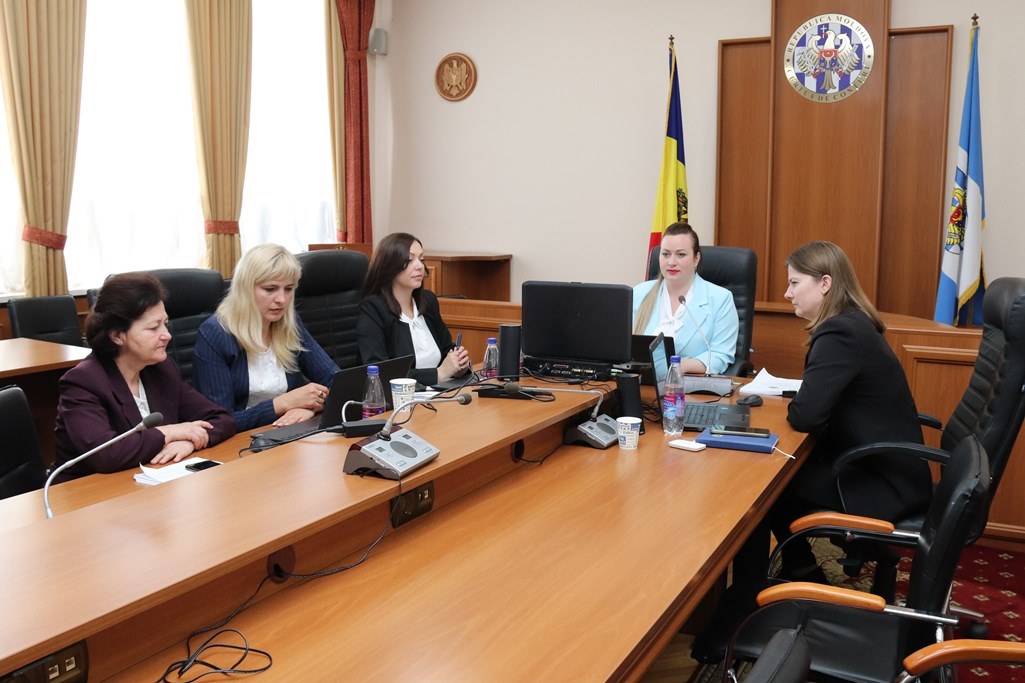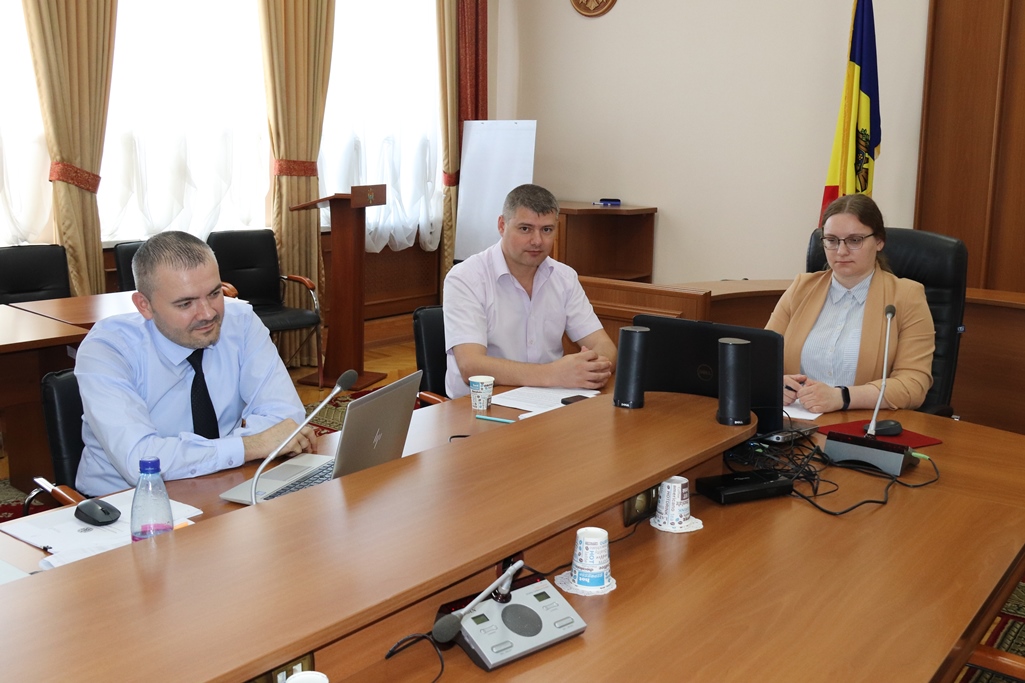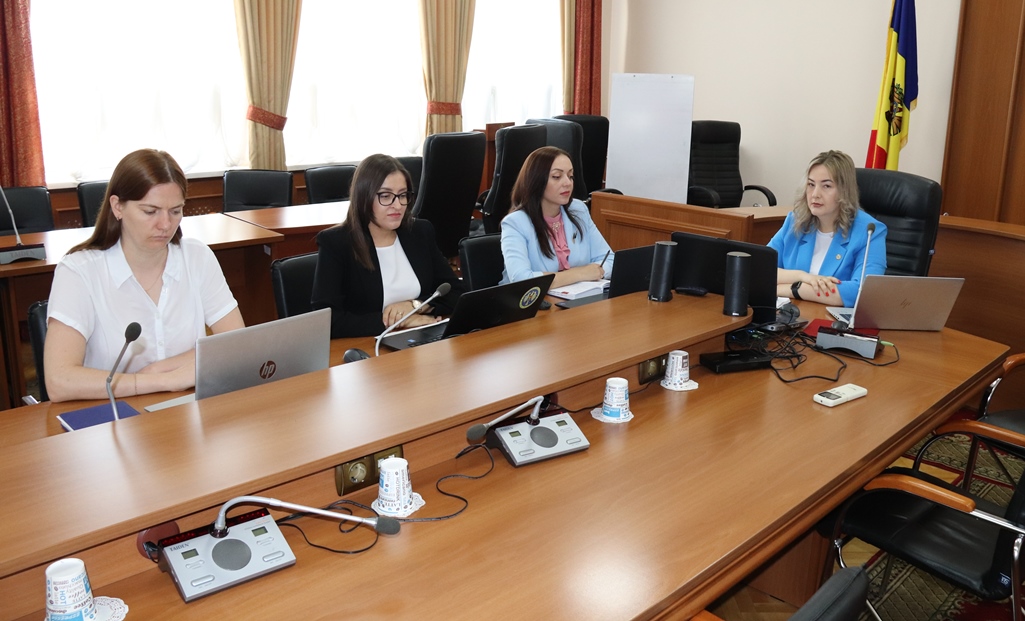
The Court of Accounts of the Republic of Moldova, on May 25, examined the financial audit report of the Government Report on the execution of the state social insurance budget (SSIB) in 2022.
The purpose of the audit was to provide reasonable assurance regarding the fact that the Government Report does not contain material misstatements, caused by fraud or error, with the issuance of an opinion.
The audit samples were collected within the National Social Insurance House (NSIH) by requesting information from the entities that are responsible for some processes, such as the State Fiscal Service, the Ministry of Labor and Social Protection, the Ministry of Finance, the Ministry of Health, the Public Services Agency, the Social Inspection, public medical and sanitary institutions, etc.
Through the public social insurance system, the state guarantees citizens the right to social protection in order to ensure the risks that occur during life (old age, unemployment, illness, disability), through social payments such as pensions, allowances and other social insurance benefits, which are a source of livelihood for the beneficiaries of this system. So, increased attention has been paid to the sustainability of SSIB, with the analysis of the causes and the impact for the social insurance system.
The revenues from contributions and transfers from the state budget, which totaled more than 33 billion lei, were audited. Thus, state social insurance contributions, which hold the maximum share of total revenues, totaled 18.3 billion lei, which is 54.2%. They also increased by 2.1 billion lei compared to the previous year.
With reference to general purpose transfers, the audit finds that they have increased four times in the last five years, from 1.1 billion in 2018 to 4.4 billion lei in 2022.
In this context, the Court of Accounts mentions that the evolution of general purpose transfers, as well as the obligations towards beneficiaries, can affect the sustainability of this budget and increase the burden on the state budget.
To cover the temporary cash gap, in order to honor the obligations towards the beneficiaries, in 2022, after using the amount planned to cover the deficit, the National House had to take out 2 loans from the state budget, in the total amount of 690 million lei, which were repaid by the end of the management year.
The audit specified that the constant increase in the number of the SSIB’s beneficiaries in relation to the number of taxpayers leads to increased pressure on this budget. In this context, it is mentioned that the employed population is about 805 thousand people, of which about 180 thousand people are at the same time taxpayers and beneficiaries of benefits. At the same time, the estimated audit data indicate that the unemployed population represents approximately 498.8 thousand people.
Thus, although there is potential to increase the number of the SSIB taxpayers, the reserve is maintained due to the existence of undeclared work, envelope wages or unattractive wages, etc. Given that the number of benefit beneficiaries increases annually, the aging rate increases, the birth rate decreases, and the dark economy persists, the social insurance system risks not being sustainable over time.
Subsequently, the audit notes that the payment of dividends to individuals at a taxable rate of 6%, compared to other taxes paid on salary payments, is a legal method that favors the risk of the appearance and maintenance of the salaries in the envelope. Thus, in 2022, 8,861 natural persons benefited from dividends, the value of dividends paid being 10.1 billion lei, and the income tax withheld from dividends was 0.6 billion.
We specify that in the fourth quarter of 2022, according to the statistical data, informal work was provided by approx. 192.4 thousand people, while the State Labor Inspectorate found only 82 people working without legal forms of employment.
Another audit finding concerns the process of awarding, verifying and paying social and cold season benefits, which is fragmented and results in data inconsistency at all stages and levels. This directly influences the SSIB indicators and generates the non-refund of amounts paid improperly. Thus, for the period between 2017-2022, were stated improperly paid payments in the amount of 11.7 million lei and a low index of restitution at the level of 53.4% of these amounts, thus determining unjustified expenses of over 5.4 million lei.
Concerning the pensions for the age limit, disability, successor and anticipated, it is denoted that they were established according to the legal framework. At the same time, the delayed receipt of information regarding the death of the beneficiaries caused unjustified expenses in the amount of 1.2 million lei. This was caused by the systemic process of exchanging beneficiary death data and entering death information with a delay of up to 1 year.
Regarding allowances for temporary incapacity for work, several problems are noted, including:
- presentation of erroneous information in the State Register of individual records by employers;
- late transmission of information by the medical institutions in the Medical Certificates Portal, within a period of up to 365 days.
The mentioned above affected the quality of the services provided to the beneficiaries and caused the delay in the calculation and non-payment of the social benefit from the audited sample in the amount of 235.9 thousand lei.
Concerning the implementation of the recommendations submitted in the previous audit engagement, it is noted that the NSIH has carried out the processes, which conditions an efficiency in the achievement of the objectives. In this audit report, 21 audit recommendations were submitted, some of them being reiterated as a result of their non-implementation or partial implementation.
The Court of Accounts concluded that, based on the findings presented and taking into account the established materiality threshold, the Government's report on the execution of the state social insurance budget provides, in all material respects, a fair and true picture, according to the applicable financial reporting framework.
 WITH DEFICIENCES OF VIEW
WITH DEFICIENCES OF VIEW Youtube
Youtube Facebook
Facebook


 print
print
.jpeg)



